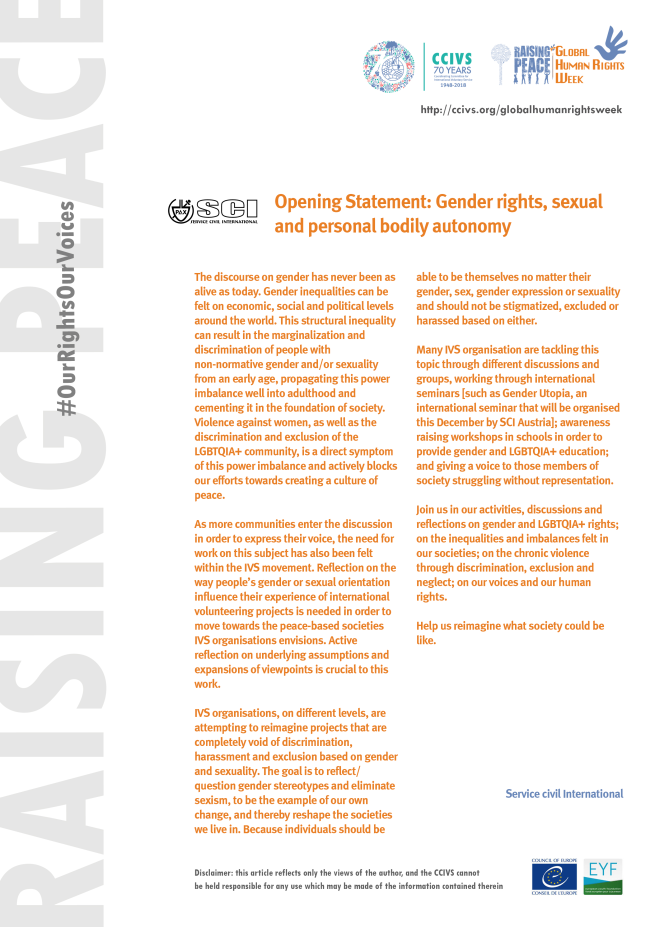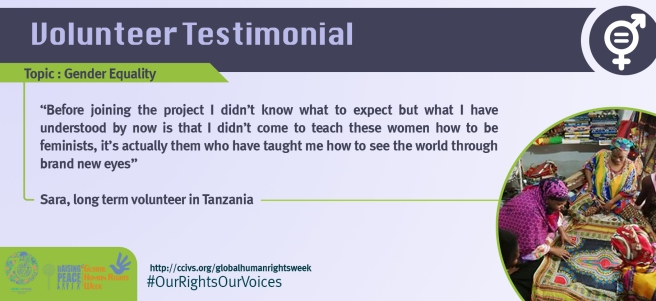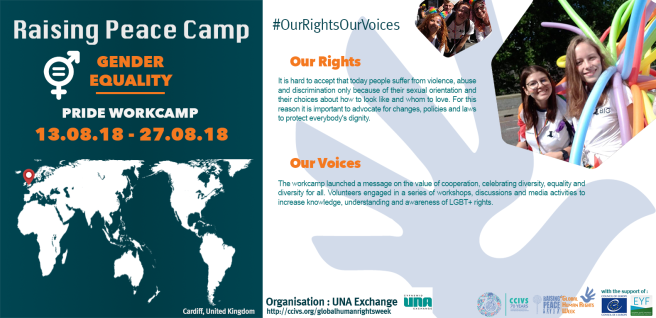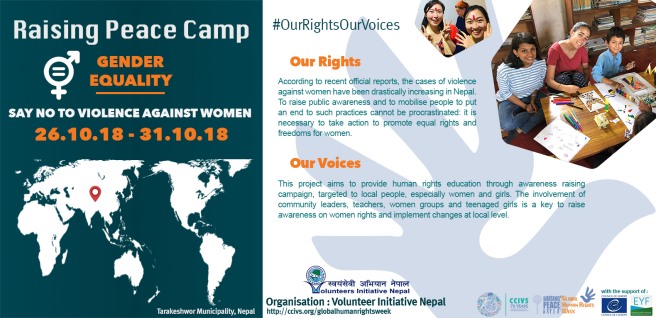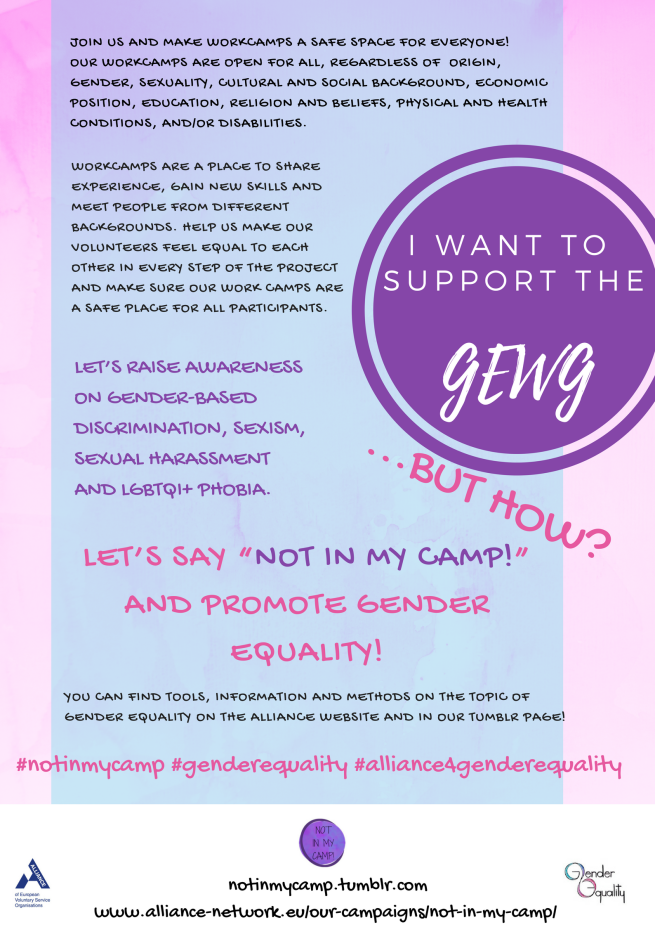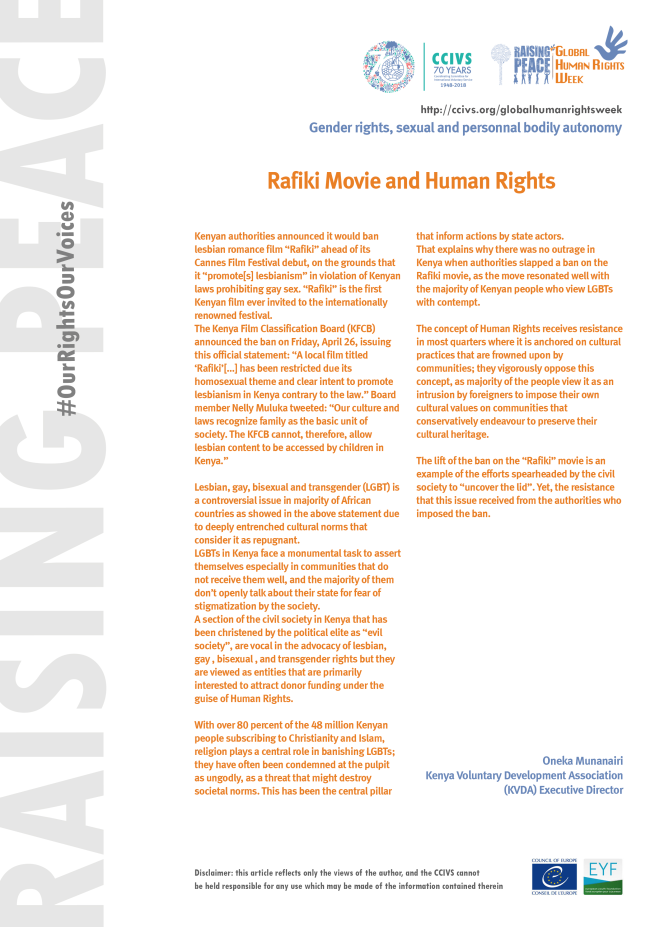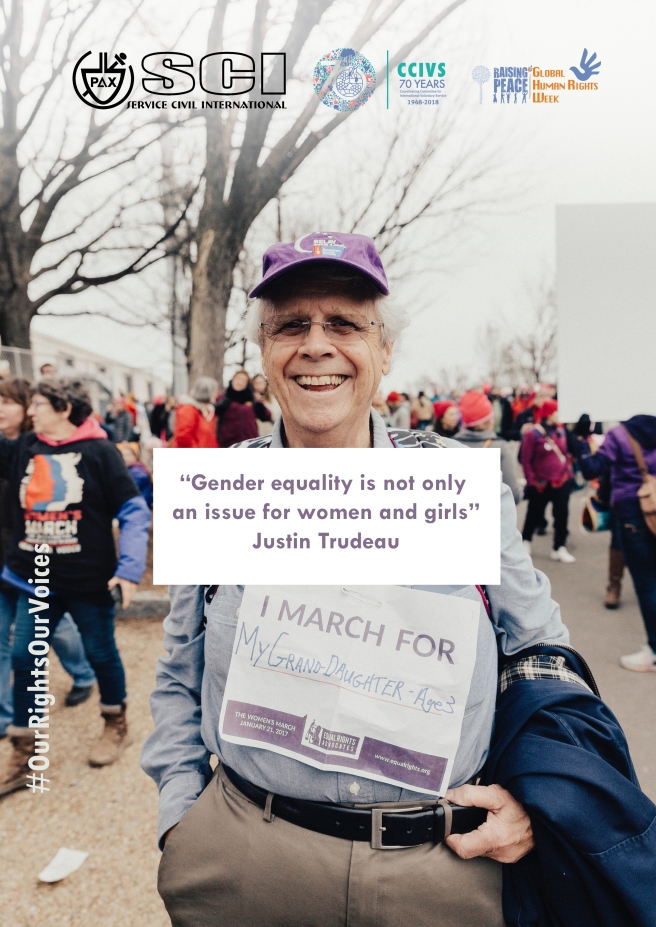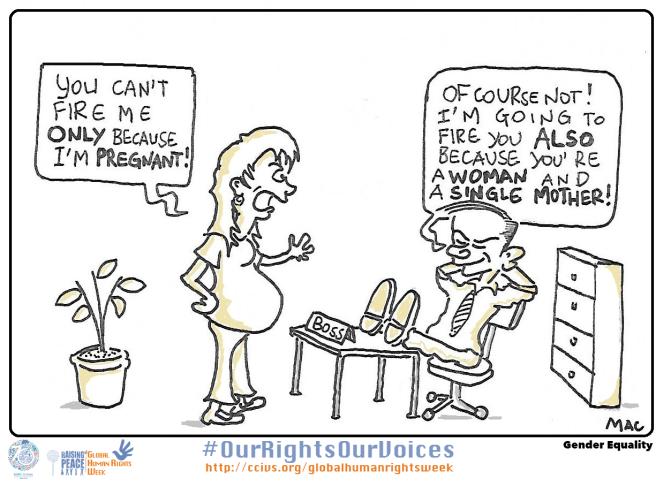Thursday, 18 October: Gender rights, sexual and personal bodily autonomy
One of the main challenges for those who struggle on behalf of gender equality, dignity and respect is to prove why these principles are important for everyone, not just for the groups these values refer to.
The most effective way to react to inequality, hate speech and sexism is by moving the conversation forward, highlighting the benefits of living in a society that protects and promotes diversity and dignity for all. Even if these tenets are clearly expressed in the Universal Declaration of Human Rights (Art 1: “All human beings are born free and equal in dignity and rights”), their recognition around the world meets currently social, economical and cultural obstacles.
When we talk about gender equality, respect and recognition for the LGBTIQ+ community or the choice on one’s sexual orientation we are essentially talking about universal issues, like access to resources, freedom of expression and human dignity. Standing for diversity means on one hand to promote such values, on the other hand to reject totalitarian, racist and sexist mindsets. The fact that diversity is an asset rather than an obstacle is a concept which is not always easy to convey, understand and promote. Advocacy actions on behalf of equality can be muffled by right-wing rhetoric, hate speech voices and intolerance.
For this reason, methods like those used by the IVS movement can be particularly effective for the promotion of gender rights: grass-roots projects, workcamps, training courses and seminars are powerful awareness-raising instruments, capable to generate and reverberate commitment for this cause. Their impact is strong: intercultural exchanges help break stereotypes, whereas seminars structured around the NFE methodology allow to explore specific issues and to design educational tools. Thematic working groups created within the IVS movement gather international activists and encourage them to propose alternative narrative to those spread by aggressive, right-wing movements. This is also the contribution of the Global Human Rights Week.
◊
The fourth day of the GHRW was coordinated by Service Civil International. Here is the opening post:
Local and international volunteers can offer a huge contribution to raise awareness on specific issues. Raising Peace camps are initiatives where participants can focus on Human Rights, interacting with the hosting community and learning through workshops and study parts.
Working Groups and initiatives from the IVS movement give volunteers and activists a chance to focus on specific themes, like gender rights and gender equality. The GHRW highlighted two of them:
On the day focused on Gender Rights, the GHRW published an article by Oneka Munanairi from Kenya Voluntary Development Association (KVDA). Oneka casts a spotlight on Gender Rights, commenting on the ban of “Rafiki”, a movie whose distribution met several obstacles in Kenya.
When addressing the topic of Gender Rights, it is pivotal to put efforts on advocacy and awareness-raising actions. Information plays an important role, and for this reason the GHRW proposed to following online articles, related to the contents published during the day: Gender legislation in Switzerland, the impact of the #MeToo movement, and a contribution about intersex, bodily autonomy and self-determination.


